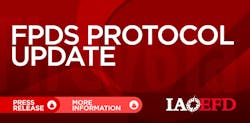IAED Upgrades Natural Gas Related Fire Protocols
SALT LAKE CITY—The International Academies of Emergency Dispatch (IAED™) has released an updated version of its Fire Priority Dispatch System™ (FPDS®) v6.1 that more accurately differentiates two incident types covered under Protocols 60, 61, and 66.
FPDS v6.1a seeks to make the distinction between the two incident types—the chief complaint’s unknown odor and natural gas leak—clearer by removing the rotten egg description of a suspected natural gas leak from the Protocol 61: HAZMAT shunt on Protocol 66: Odor (Strange/Unknown). While using the FPDS, the foremost chief complaint of a “rotten eggs or sulfur” odor should be handled on Protocol 60: Gas Leak/Gas Odor (Natural and LP Gases). As a safety net, Protocol 66 shunts the calltaker to Protocol 60 to which the clarifier “(rotten eggs/sulfur)” has been added.
For chemical suicide, the foremost chief complaint is usually an unresponsive person in a vehicle or small confined space—such as a closet or bathroom—with warning signs taped up. The odor of rotten eggs or sulfur may also be present; however, the odor is secondary to the foremost chief complaint of a chemical suicide.
Formerly, Protocol 66 had a gray shunt for “Rotten eggs/Sulfur (HAZMAT)” to Protocol 61, but this shunt has been modified in FPDS v6.1a to remove the description of “Rotten eggs/Sulfur,” and now appears as “Chemical/HAZMAT” to prevent incorrectly shunting to Protocol 61. Two new rules have also been added to Protocol 66 to aid calltakers in choosing the most appropriate protocol.
“In the past year in particular, we have had a number of cases sent to us in which the stated chief complaint was ‘smell of rotten eggs,’ said Mike Thompson, Academy Fire Curriculum Council Chair and Priority Dispatch System™ Program Administrator—Fire & Medical. “Of those cases that were sent to us, almost exclusively they turned out to be natural gas leaks that ultimately were handled on Protocol 61 because of the shunt added to Protocol 66 to capture chemical suicide cases. But Protocol 61 was not set up to handle the inherent explosion risk and scene safety issues that come with a natural gas leak case, and so it needed to be corrected.”
FPDS v6.0 and v6.1 users will receive automatic FPDS v6.1a upgrades for Priority Dispatch Corp.’s™ ProQA® calltaking software and/or updated Protocol cards for their cardsets. For more information about FPDS v6.1a, visit www.emergencydispatch.org.
About the IAED
Founded in 1988, the IAED is the foremost standard-setting and certification organization for emergency communications with more than 59,500 members in 45 countries. More than 3,650 communication centers take advantage of IAED’s protocols and training—translated into 22 languages/dialects—for medical, fire, police, and nurse triage dispatch.






